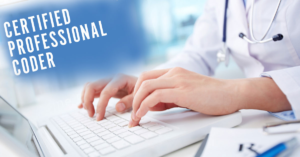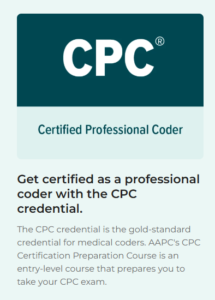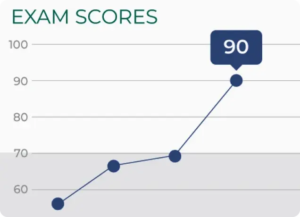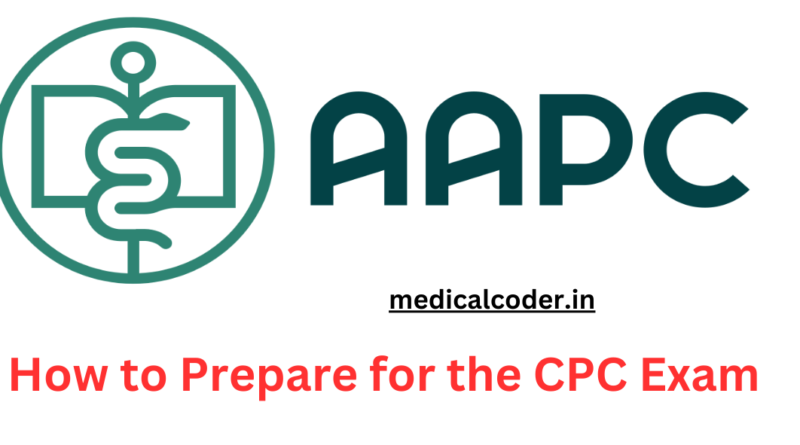How to Prepare for the CPC Exam– Tips for Medical Coders
How to Prepare for the CPC Exam: The Certified Professional Coder (CPC) exam is one of the most sought-after certifications for medical coders in the USA.
Administered by the American Academy of Professional Coders (AAPC), the CPC credential validates a coder’s proficiency in medical coding for physician-based settings.
Passing the CPC exam requires thorough preparation, strong knowledge of medical coding guidelines, and a solid understanding of anatomy, physiology, and medical terminology.
If you are planning to take the CPC exam and want to ensure you pass on the first attempt, this comprehensive guide will provide expert tips and valuable resources to help you succeed.
Also Read: CPC Certification in India (Certified Professional Coder)
Understanding the CPC Exam

The CPC exam is designed to test a candidate’s knowledge and understanding of medical coding in professional healthcare settings.
It covers various aspects of medical coding, including CPT (Current Procedural Terminology), ICD-10-CM (International Classification of Diseases, 10th Revision, Clinical Modification), and HCPCS Level II codes.
The exam also tests the ability to understand medical terminology, anatomy, and compliance regulations.
The CPC exam consists of 100 multiple-choice questions, which must be completed within four hours.
To pass, you need a score of at least 70%. The questions are scenario-based and designed to reflect real-world coding challenges that professional medical coders face daily.
The exam is divided into sections that focus on different code sets and medical procedures, including evaluation and management (E/M), surgery, radiology, pathology, and medicine.
It also includes questions on coding guidelines, compliance, and medical terminology.
Understanding the structure and format of the exam is crucial to developing an effective preparation strategy.
Read in Detail: CPC Exam Preparation For Medical Coding Certification
Why the CPC Certification Matters

The CPC certification is highly valued in the healthcare industry because it demonstrates a coder’s expertise and ability to accurately code medical procedures and diagnoses.
CPC-certified coders are in high demand across various healthcare settings, including hospitals, outpatient clinics, and physician practices.
Holding a CPC credential can significantly increase your earning potential and open doors to better job opportunities.
According to AAPC salary reports, CPC-certified coders earn approximately 20% more than non-certified coders.
The certification also enhances job security and provides opportunities for career advancement into specialized coding roles or leadership positions.
Effective Study Strategies – How to Prepare for the CPC Exam

To pass the CPC exam, it’s essential to follow a structured study plan that covers all the necessary topics and allows you to practice coding scenarios.
Begin by creating a study schedule that includes daily study sessions and practice tests.
Allocate more time to the areas where you feel less confident, but ensure that you review all coding guidelines and code sets thoroughly.
Focus on understanding the CPT, ICD-10-CM, and HCPCS Level II codes.
Familiarize yourself with the layout of the codebooks and practice looking up codes quickly and accurately.
Time management is a key factor in passing the exam, so practice coding under timed conditions to improve your speed and accuracy.
Use official AAPC study guides and coding manuals to reinforce your knowledge.
Enroll in an AAPC-approved CPC exam preparation course if you need additional support.
Online resources, such as coding forums and study groups, can also provide valuable insights and tips from experienced coders who have passed the exam.
In addition to coding knowledge, brush up on medical terminology, anatomy, and physiology.
The CPC exam often includes questions that require a solid understanding of human anatomy and medical terms to accurately assign codes.
Detailed Guide: Tips to Pass the CPC Exam in 2025
Best Resources for CPC Exam Preparation (How to Prepare for the CPC Exam)

There are several high-quality resources available to help you prepare for the CPC exam.
AAPC offers official study guides, practice exams, and online courses tailored specifically for the CPC exam.
Investing in these resources can give you a competitive edge and improve your chances of passing the exam.
The AAPC CPC Study Guide is a comprehensive resource that covers all sections of the exam and includes practice questions, coding scenarios, and test-taking strategies.
The study guide is updated annually to reflect changes in coding guidelines and regulations.
AAPC also offers CPC online courses that provide structured learning and interactive coding exercises.
These courses are designed to accommodate different learning styles and allow you to study at your own pace.
Practice exams are another valuable resource for CPC exam preparation.
AAPC provides official CPC practice exams that simulate the actual exam experience.
Taking multiple practice exams will help you identify your strengths and weaknesses and improve your test-taking skills.
Online coding forums and study groups can also be helpful.
Join AAPC’s online community to connect with other coders preparing for the CPC exam.
Sharing study tips and discussing coding scenarios with peers can enhance your understanding of complex coding concepts.
How to Manage Time During the CPC Exam

Time management is critical when taking the CPC exam.
With 100 questions to answer in four hours, you’ll have approximately 2.4 minutes per question.
To maximize your efficiency, start by answering the questions you find easiest.
This will help you gain confidence and accumulate points early in the exam.
If you encounter a difficult question, skip it and return to it later.
Spending too much time on a single question can cost you valuable time and prevent you from completing the exam.
Use the process of elimination to narrow down the answer choices and make an educated guess if you’re unsure.
Mark questions that you want to revisit and double-check your answers before submitting the exam.
Ensure that you have answered all questions, as unanswered questions are marked incorrect.
More in Detail: Tackle Your AAPC Exam with 12 Time-Saving Techniques
Common Challenges and How to Overcome Them
Many candidates find the CPC exam challenging due to the volume of information and the complexity of the questions.
One common challenge is managing anxiety during the exam. To reduce stress, take deep breaths and remind yourself that you’ve prepared thoroughly.
Another challenge is understanding complex coding scenarios.
To overcome this, practice coding case studies and real-world scenarios during your preparation.
Familiarize yourself with medical reports and physician notes to improve your ability to extract relevant information and assign accurate codes.
Some candidates struggle with the CPT guidelines and modifiers.
Review the CPT guidelines carefully and create flashcards for the most commonly used modifiers.
Understanding how modifiers impact code selection is essential for accurate coding.
Tips for Exam Day Success
On the day of the exam, arrive early and bring all necessary materials, including your CPT, ICD-10-CM, and HCPCS Level II codebooks.
Ensure that your codebooks are properly tabbed and highlighted to help you find codes quickly.
Wear comfortable clothing and bring a bottle of water to stay hydrated. Stay calm and focused throughout the exam.
If you feel overwhelmed, take a moment to breathe and reset your focus.
Pace yourself and avoid rushing through the questions.
Read each question carefully and make sure you understand the coding scenario before selecting an answer.
Use your scratch paper to work through complex coding problems.
After completing the exam, review your answers if time permits.
Make sure you have answered all questions and that your responses are marked correctly on the answer sheet.
What to Do After the Exam
After the exam, AAPC will notify you of your results within 5 to 7 business days.
If you pass the exam, you’ll receive your CPC certification and can begin applying for higher-paying medical coding jobs.
If you don’t pass the exam on your first attempt, don’t get discouraged.
AAPC allows you to retake the exam, so use the experience to identify your weak areas and improve your study strategy.
Review the questions you missed and focus on strengthening your knowledge in those areas.
Continue learning and expanding your coding knowledge even after passing the exam.
The healthcare industry is constantly evolving, and staying updated with coding changes and guidelines will help you maintain your certification and advance in your career.
Conclusion – How to Prepare for the CPC Exam
Preparing for the CPC exam requires a strategic approach and consistent effort.
By understanding the exam structure, using high-quality study resources, and practicing coding scenarios, you can improve your chances of passing the exam on your first attempt.
Focus on time management, accuracy, and understanding coding guidelines to enhance your coding skills.
With the right preparation and mindset, you can achieve CPC certification and unlock new career opportunities in the medical coding industry.

